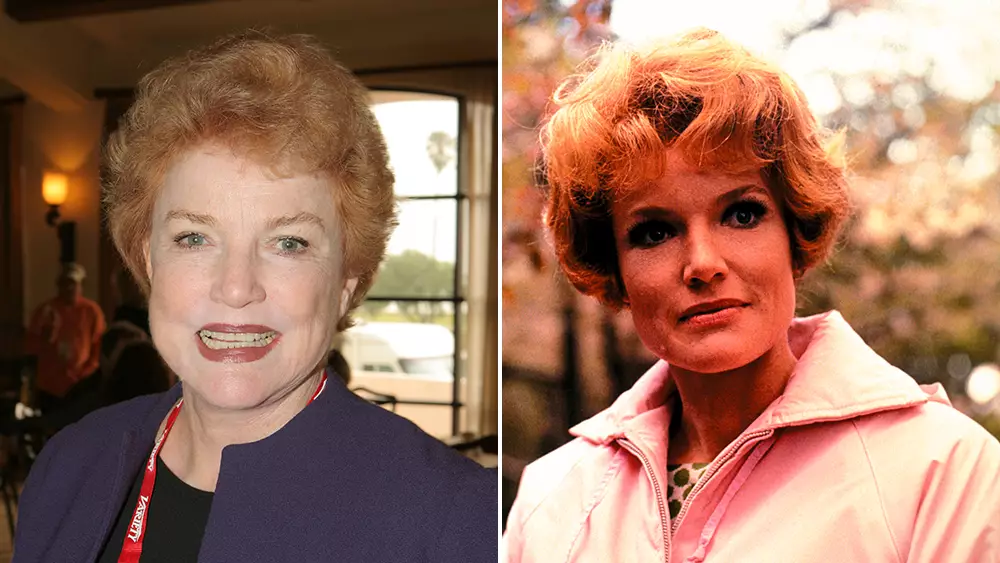Pippa Scott, a name that resonates with the essence of mid-20th-century cinema, has sadly departed from this world at the age of 90. A true veteran of the arts, Scott’s extensive career saw her grace some of Hollywood’s most iconic films. She was born on November 10, 1934, into a family steeped in theatrical tradition, with her mother being a stage actress and her father an Oscar-nominated screenwriter. This background surely laid the groundwork for her rich and varied career. Yet, beyond her cinematic achievements lies a narrative that intertwines stardom with an unwavering commitment to humanitarian efforts.
Pippa’s cinematic journey commenced with major roles, including her memorable performance in John Ford’s “The Searchers” alongside John Wayne. This film and others like “Auntie Mame,” which garnered six Academy Award nominations, suggest a trajectory that could have firmly entrenched her in celebrity culture. However, what sets Scott apart is her transition from acting to activism, which showcases a deeper dimension of her character. In the 1990s, she leveraged her star power into meaningful humanitarian endeavors, focusing on human rights causes that demanded global attention.
The Duality of Stardom and Advocacy
It’s not unusual for actors to step into advocacy roles, yet few manage to blend the two as effortlessly as Scott. She established the International Monitor Institute, a nonprofit dedicated to documenting war crimes and aiding in the prosecution of those responsible for atrocities during the Rwandan and Bosnian genocides. Her work not only highlights the tragic consequences of conflict but also serves as a poignant reminder that those in positions of influence can wield their voices for justice.
Her involvement with PBS Frontline’s “The World’s Most Wanted Man,” centering on the capture of war criminal Radovan Karadzic, presents Scott as not only an artist but a determined activist willing to confront some of humanity’s gravest challenges. This intellectual and moral engagement adds a complexity to her legacy that extends far beyond the scope of Hollywood, reflecting a centrist liberal perspective that understands the intersection of art and advocacy.
The Pervasiveness of Loss in an Era of Change
Scott’s passing illuminates a broader narrative of loss within an industry that is constantly evolving. Her career began in a time when actresses were often pigeonholed into certain roles, yet she broke through these barriers, shaping a new paradigm of how actresses could represent strength and resilience. Each role she played resonates with authenticity, informing a modern audience about the power of storytelling as a tool for social change.
While she was no longer a constant figure in the public eye, her absence from our screens is felt—not just as the loss of a talented actress, but as an emblem of a generation that fought tirelessly for justice. As we reflect on her legacy, we are reminded that the art of film, coupled with a passion for humanitarianism, can create ripples that compel society toward a more humane existence. Pippa Scott was not just an entertainer; she was a beacon of hope, a testament to the idea that one can be both a star and a light for the marginalized.

